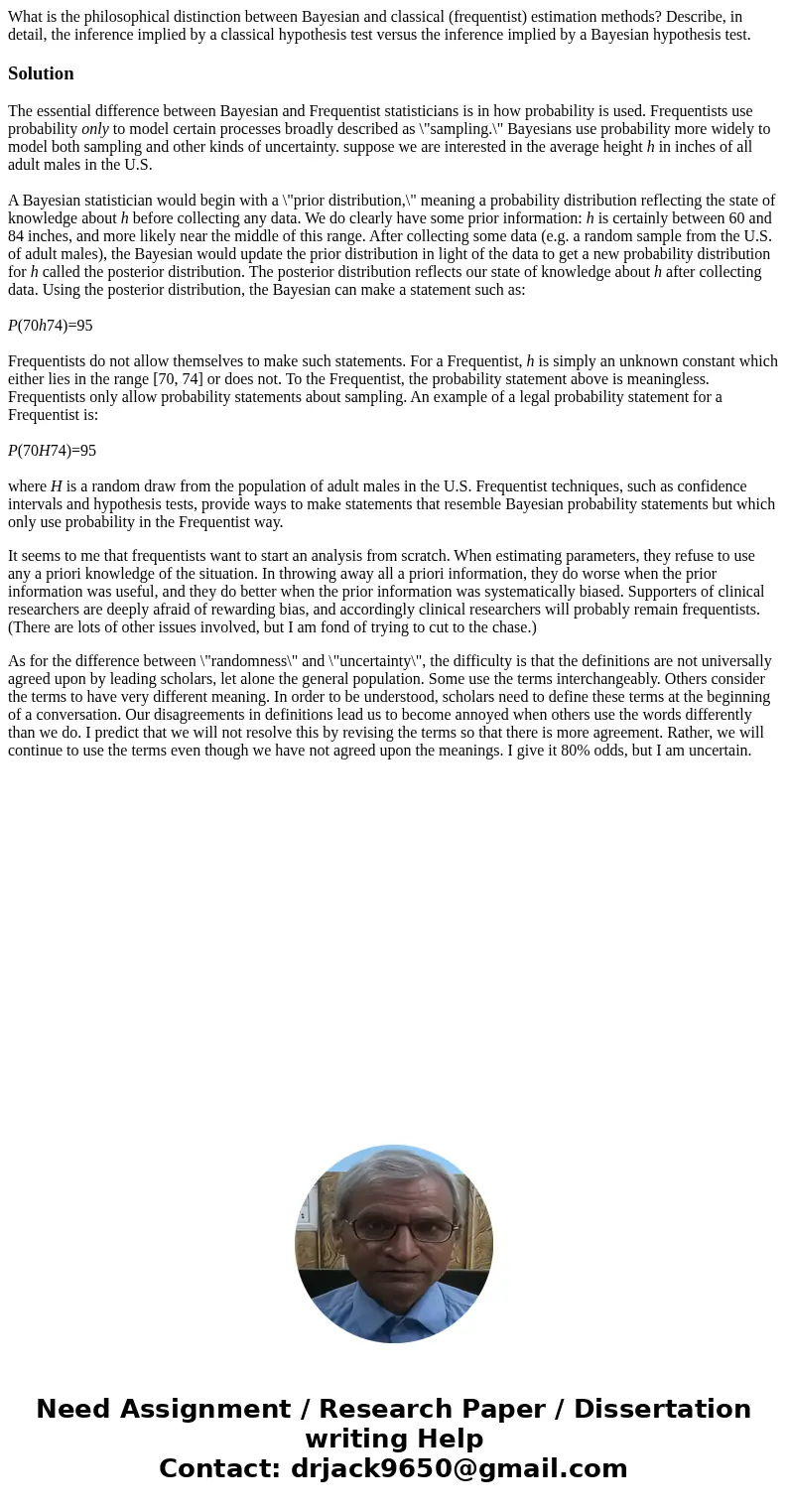What is the philosophical distinction between Bayesian and c
What is the philosophical distinction between Bayesian and classical (frequentist) estimation methods? Describe, in detail, the inference implied by a classical hypothesis test versus the inference implied by a Bayesian hypothesis test.
Solution
The essential difference between Bayesian and Frequentist statisticians is in how probability is used. Frequentists use probability only to model certain processes broadly described as \"sampling.\" Bayesians use probability more widely to model both sampling and other kinds of uncertainty. suppose we are interested in the average height h in inches of all adult males in the U.S.
A Bayesian statistician would begin with a \"prior distribution,\" meaning a probability distribution reflecting the state of knowledge about h before collecting any data. We do clearly have some prior information: h is certainly between 60 and 84 inches, and more likely near the middle of this range. After collecting some data (e.g. a random sample from the U.S. of adult males), the Bayesian would update the prior distribution in light of the data to get a new probability distribution for h called the posterior distribution. The posterior distribution reflects our state of knowledge about h after collecting data. Using the posterior distribution, the Bayesian can make a statement such as:
P(70h74)=95
Frequentists do not allow themselves to make such statements. For a Frequentist, h is simply an unknown constant which either lies in the range [70, 74] or does not. To the Frequentist, the probability statement above is meaningless. Frequentists only allow probability statements about sampling. An example of a legal probability statement for a Frequentist is:
P(70H74)=95
where H is a random draw from the population of adult males in the U.S. Frequentist techniques, such as confidence intervals and hypothesis tests, provide ways to make statements that resemble Bayesian probability statements but which only use probability in the Frequentist way.
It seems to me that frequentists want to start an analysis from scratch. When estimating parameters, they refuse to use any a priori knowledge of the situation. In throwing away all a priori information, they do worse when the prior information was useful, and they do better when the prior information was systematically biased. Supporters of clinical researchers are deeply afraid of rewarding bias, and accordingly clinical researchers will probably remain frequentists. (There are lots of other issues involved, but I am fond of trying to cut to the chase.)
As for the difference between \"randomness\" and \"uncertainty\", the difficulty is that the definitions are not universally agreed upon by leading scholars, let alone the general population. Some use the terms interchangeably. Others consider the terms to have very different meaning. In order to be understood, scholars need to define these terms at the beginning of a conversation. Our disagreements in definitions lead us to become annoyed when others use the words differently than we do. I predict that we will not resolve this by revising the terms so that there is more agreement. Rather, we will continue to use the terms even though we have not agreed upon the meanings. I give it 80% odds, but I am uncertain.

 Homework Sourse
Homework Sourse